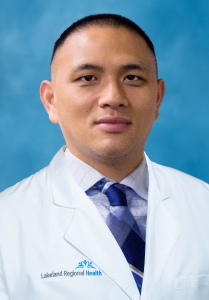By TOAN NGUYEN, MD

Is developing cancer more likely if someone in your family has cancer?
More than 1.7 million new cancer cases are expected to be diagnosed in 2019, according to the American Cancer Society. All cancers form due to small genetic alterations in dividing cells within our bodies. These alterations are more likely to occur as we continue to age and increase in likelihood because of environmental reasons, lifestyle behaviors; hereditary factors, such as family history; or just bad luck.
With the decoding of the human genome more than two decades ago, we have learned that there are more than 20,000 genes that determine the many characteristics or physical traits within our bodies. Some of these genes, if altered, can lead a cell line to develop an abnormal and uncontrolled growth we call cancer. Additionally, we all inherit a copy of all our genes from our father and a similar set from our mother. If either parent harbors an abnormal copy of a gene, they can transmit that abnormal gene to their children, causing an increased risk of cancer in carriers of the mutated gene.
Let’s take breast cancer, for example. An average woman with no family history has about a 12% chance of developing breast cancer in her lifetime. However, women with close relatives who have been diagnosed with breast cancer have a higher risk of developing the disease. If one first-degree female relative, such as a sister, mother or daughter, is diagnosed with breast cancer, your risk is doubled. If two first-degree relatives have been diagnosed, your risk can be 5 times higher than average. Finally, having a genetic mutation in the genes, such as BRCA 1 and 2, can elevate a women’s risk to more than 70% lifetime risk, with additional elevated risks of developing ovarian cancer, pancreatic cancer and prostate cancer in males. At least 10% of women with breast cancer carry a genetic mutation that leads to the development of their cancer. Recently, the American Society of Breast Surgeons even advocated that all patients with breast cancer undergo genetic testing.
Of the 10% of women who do harbor a genetic mutation related to breast cancer, their risk of developing a breast cancer ranges from slightly above average with several genes to a high degree of probability with the BRCA genes. Many genes like BRCA also lead to development of cancers in other organs as well.
If this information is known, there are several medical interventions or treatments that can significantly lower the risks of cancer development and dying early from that cancer. If you have several family members with different cancers or the same cancer or you have been diagnosed with cancer that is more likely to harbor a genetic mutation like ovarian cancer, pancreatic cancer or metastatic prostate cancer, you may be at risk of carrying a mutation for a genetic defect, which can also be transmitted to your children.
At Hollis Cancer Center, we provide comprehensive genetic testing for eligible patients along with pre- and post-counseling. We carefully formulate a plan for screening and intervention for patients who are found to carry a genetic abnormality. Finally, for cancer patients who do harbor specific genetic mutations, we now have FDA-approved treatments specifically tailored for improved survival and best outcomes.
About the Author
Toan Nguyen, MD, is a Breast Surgeon with the nationally recognized Hollis Cancer Center and serves as Medical Director for Breast Oncology for Lakeland Regional Health. Learn more about our Breast Cancer Program or call 863.603.6565 to make an appointment with Dr. Nguyen.
